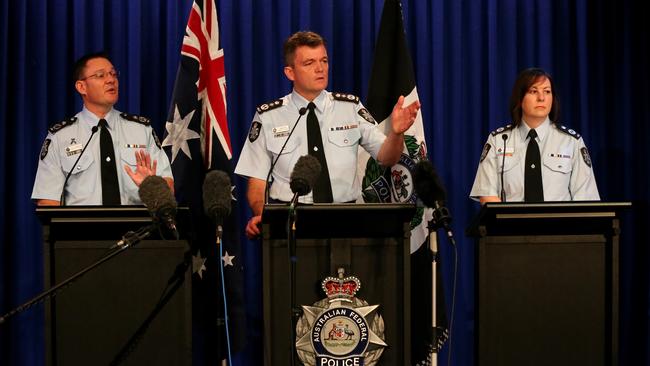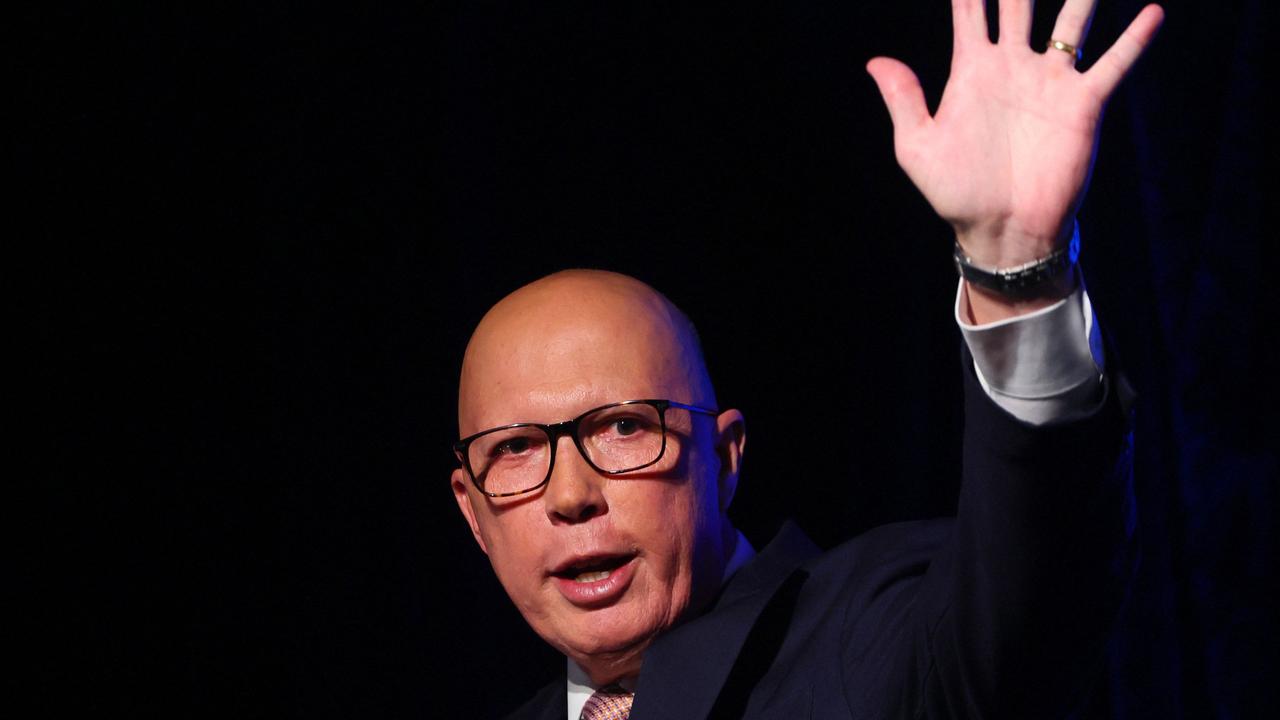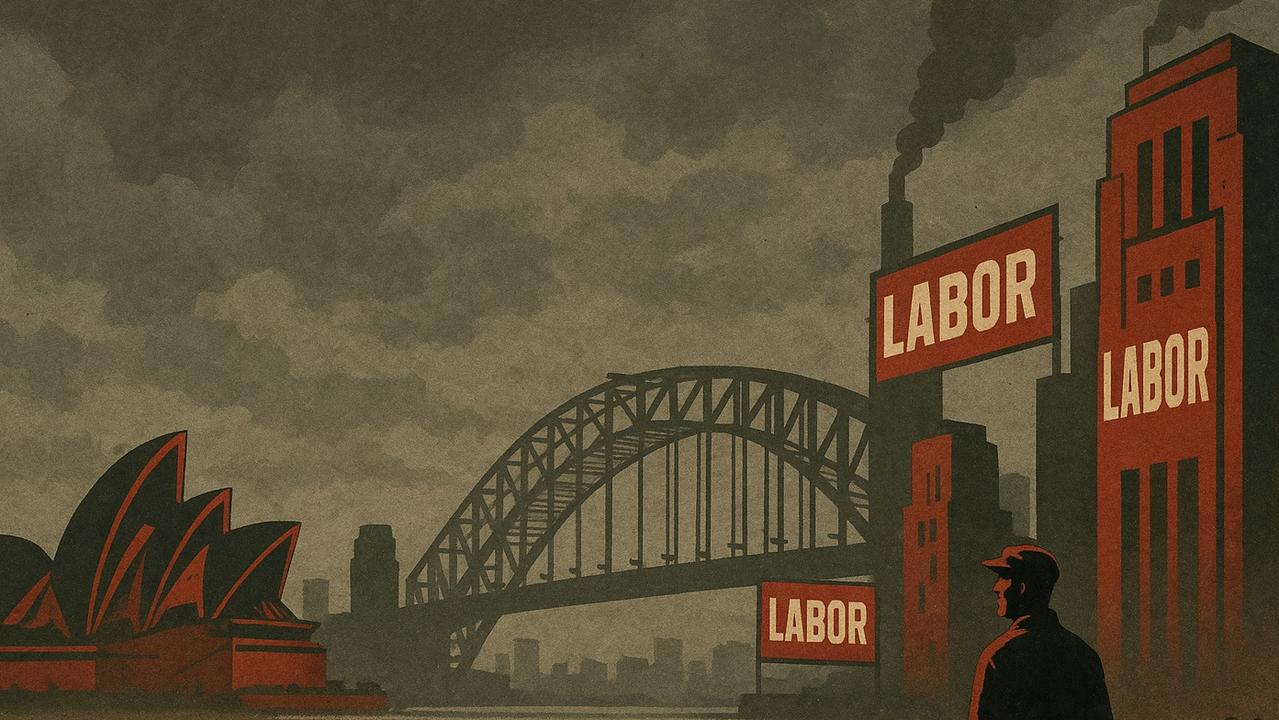Bali Nine: Where the AFP went wrong
THERE were two issues not raised during the media conference held by the AFP to explain its handling of the Bali Nine investigation.

Opinion
Don't miss out on the headlines from Opinion. Followed categories will be added to My News.
THERE were two issues not raised during the media conference held by the AFP to explain its handling of the Bali Nine investigation. Those were the conservative risk appetite of the AFP in relation to conducting drug investigations and the lack of expertise in assessing all investigation options.
The Bali Nine was not the first group of young Australians to venture overseas with the intention of importing narcotics. Where that occurred on my watch, as Director AFP Operations in Perth, they arrived back in Australia to be prosecuted.
But a significant difference between the Bali Nine investigation and previous operations was the Bali Nine intended to return in two groups at different times. When I was a young soldier my platoon sergeant offered me some advice. He said if you want a successful career and to be promoted then don’t do anything. Do not take risks because if you fail you will be criticised and marked as incompetent.
That is the situation in the AFP. It has a risk-averse culture. Managers do not want to take operational risks for fear an investigation could fail and they could be subjected to severe criticism and have limited career options.
So it was no surprise that the AFP elected to have the Indonesian National Police arrest the Bali Nine. To allow them to proceed to Australia posed a risk of operational failure beyond what was acceptable to AFP management.
And allowing the INP to arrest the Bali Nine substantially reinforced the professional relationship between the AFP and the INP.
What appeared to be missing from the AFP’s planning was a thorough assessment of the options. One tool to assess risk that is rarely used in the AFP is a tactical appreciation. It is used to identify and assess all options being considered before choosing one. I once used it to convince an AFP commissioner to allow almost a tonne of narcotics to proceed unhindered across Australia to a major capital city.

These tactics were once taught in the AFP but discarded, partly due to cost cutting but also because senior AFP managers with no national operational policing experience thought they were not worthwhile.
The Bali Nine organisers planned to send the couriers back to Australia in two separate groups. Had the AFP allowed the first group to return they would have had to allow them to proceed unhindered through Customs and then follow them to their destination.
This is not an easy thing to do tactically. The couriers and any drugs could have disappeared. With the second group of couriers then, a search on their arrival would have led to the discovery of the drugs.
Those couriers would have been asked to participate in a controlled operation, which would have involved delivering the heroin or a substitute product to the intended recipients, presumably higher level organisers. Assuming the first group had been allowed to proceed unhindered, they would then be arrested. Potential evidence from co-operating couriers with evidence collected by the INP would have resulted in the arrest of Chan and Sukumaran in Australia and any other person who took possession of the drugs.
These options could have been thrashed out in a tactical appreciation that would have guided operational managers and nervous senior managers in Canberra on what could be done and when.
Twenty years ago, the AFP used to allow drugs to run “live”, that is not substituted by an inert but similar looking substance. But this changed as senior managers became scared that loss of any drugs would pose an unacceptable risk to the public and open the AFP to criticism. This was the case when front line investigators wanted to allow potentially uncooperative couriers to proceed through Customs unhindered. This change in tactics was a significant blow to any chance of capturing significant drug organisers. The apparent absence of any real assessment of the tactical options open to the AFP in the Bali Nine matter led to a premature decision to arrest the couriers and lower level organisers in Indonesia.
It resulted in any options to identify and arrest higher level organisers in Australia being lost.
Ironically, the option that was chosen — while posing the least risk to the success of the operation — posed the greatest risk of damage to the reputation of the AFP and the imposition of even tighter restrictions on how it should operate offshore in the future.
If the AFP is to be a true contender in the fight against organised crime it needs to accept a higher level of operational risk. This means some low-level criminals may evade conviction and narcotics may be lost, but it also means a greater chance of apprehending major criminals.
Otherwise, the AFP is simply a customs organisation by another name.
Chris Douglas was Director of AFP Operations Perth and Chair of the WA Joint Operational Co-ordination Team, which co-ordinated major drug operations.


